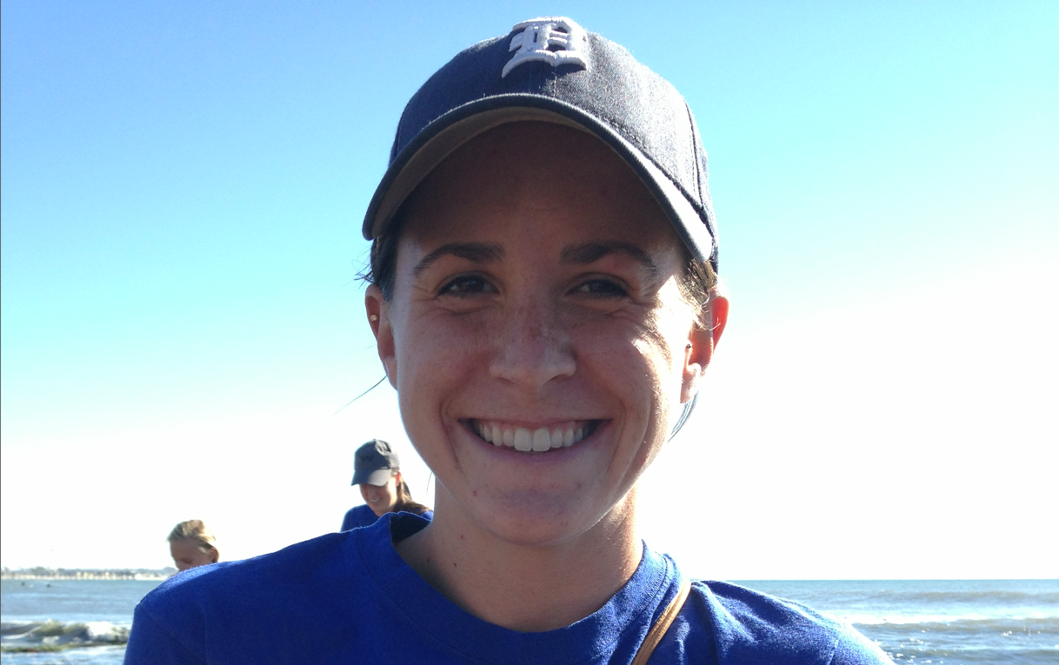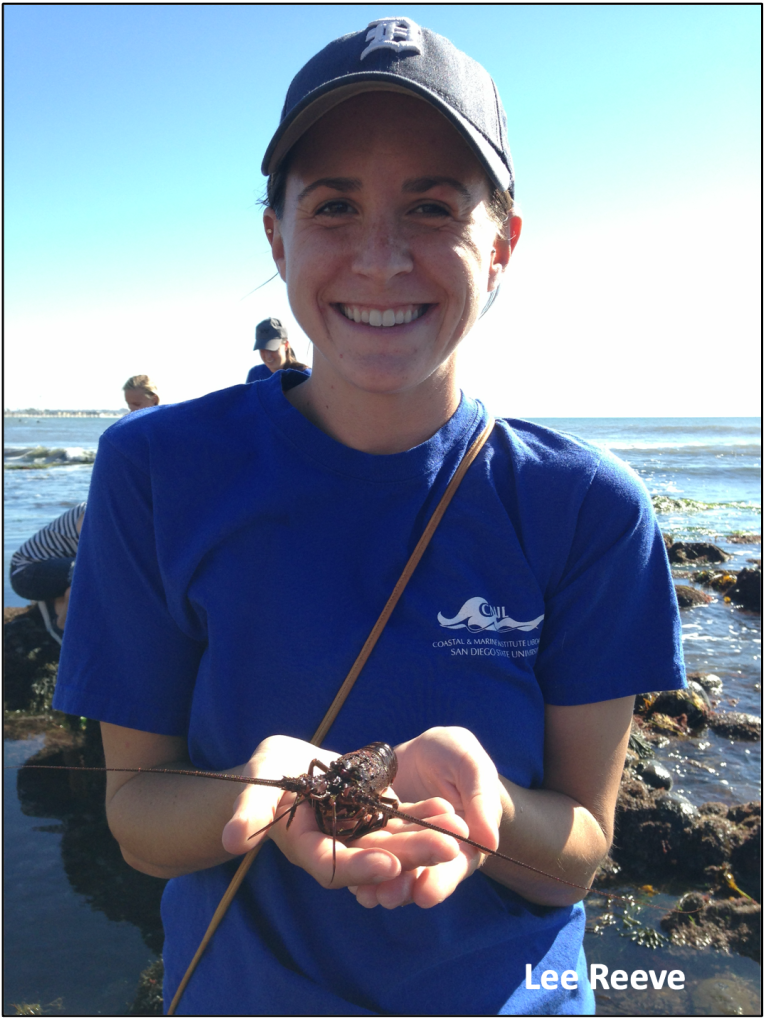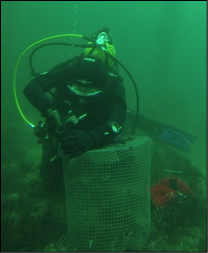
Dr. Amalia Harrington: A Cross-Country Adventure with Lobsters
Growing up in Michigan, some of my earliest memories involve spending time in or on the water. I knew from an early age that I wanted to study the ocean so I moved to California to attend the University of San Diego for college. As an undergraduate, I was exposed to a variety of different habitats and systems as part of my courses. From mudflats in Mission Bay to the rocky cliffs of Torrey Pines State Park, I was able to physically explore the environments I was learning about in lecture using the best practices available for field-based research. The summer before my senior year, I received funding to support my work on a project in the US Virgin Islands exploring sedimentation on coral reefs. This experience changed my life forever as it introduced me to scientific diving – one summer was all it took for me to get hooked.

I took a year off in between completing my bachelor’s degree and starting graduate school, but it was one of the best decisions I have ever made. I was able to reflect on what I did and did not like about my experiences in college, and helped me focus my interests to better connect with prospective advisors. I pursued a master’s degree under the supervision of Dr. Kevin Hovel in the School of Biology at San Diego State University. My thesis research used the California spiny lobster as a model species to explore some of the foundational principles in ecology. I was charged with coordinating SCUBA-based surveys along the southern California coast at newly-implemented marine protected areas as part of a multi-disciplinary team project with industry, scientists, and managers. This was my first real taste of collaborative science, and it offered a number of important lessons that continue to shape my approach to science. I realized that even though we didn’t always agree, bringing a diverse group of people to the table was critical to ensuring the questions we were asking were grounded in reality so the results could be impactful.
After I completed my master’s degree, I spent a year working for the California Department of Fish and Wildlife and teaching at a local community college. I wasn’t sure if I wanted to pursue a PhD, so I decided to take some time to really think about my next step. After nearly a decade in San Diego, I took a gamble and packed up my belongings to move across the country to join UMaine’s School of Marine Sciences (SMS). Home to the iconic American lobster, the rapidly changing waters of the Gulf of Maine region seemed like a dream natural laboratory to work in and an excellent next step for my research career. Even though I loved my research and being in the field to gather my data, my first year presented a number of unanticipated challenges that left me questioning if I belonged at UMaine. After a lot of reflection and with the support of several faculty in SMS, I moved into a lab where I felt valued, respected, and encouraged. My dissertation pivoted from one that was primarily field-based to one that relied heavily on lab experiments and benchwork to produce results. I was devastated to take a step back from SCUBA-centered research, but I will be forever grateful that my advisor, Dr. Heather Hamlin, gave me the opportunity (and challenge!) to learn new skills to enhance my toolbox. I was still able to ask the same kinds of questions, but now I was using molecular techniques, lab assays, and complex recirculating seawater systems to explore lobster physiology in a changing environment.

I stayed on in the Hamlin Lab as a postdoctoral researcher to continue building upon my dissertation research. In early 2020, however, I decided to shift gears and joined Maine Sea Grant as their lobster extension specialist. I was excited to approach science from a different angle as the coordinator of a regional extension network in support of the National Sea Grant American Lobster Initiative (ALI). The goal of the ongoing ALI is to increase the lobster industry’s resilience to a changing environment by supporting collaborative research across disciplines and sectors. My role in this network was to help bridge the various researchers, industry groups, and state and federal managers to foster applied and relevant research efforts all centered on understanding lobster in a changing ecosystem. Although the COVID-19 pandemic caused some disruptions to the overarching plans for the ALI, the network persevered as we began building our community. When we were finally able to get together for the first time in person at the ALI Summit, it was such a wonderful (albeit exhausting!) experience. It was particularly rewarding to see graduate students use the ALI network as a conduit for their own career development and next steps.
During my time at Maine Sea Grant, I truly enjoyed facilitating connections across groups to foster collaboration while leveraging resources. It was particularly exciting to work with Christina Cash, Executive Director of UMaine’s Lobster Institute, to bring our UMaine-centered lobster group into the growing network. Engaging with diverse voices and perspectives all focused on the lobster industry provided a unique challenge that helped me refocus my personal approach to conducting research. When the opportunity to join SMS as faculty arose, I jumped at the chance to get back into a space where I could better balance my research, teaching, and service interests. As a new Assistant Professor of Marine Biology, I’m thrilled to build out my research portfolio while applying the various skills I’ve learned at every stage of my career. I am most looking forward to bringing on new graduate and undergraduate students to not only share my experiences and expertise with them, but also to challenge them to learn new techniques beyond my toolbox. I hope to instill the mentality that the most impactful science is conducted in the spirit of collaboration. I also hope to remind people that there is no “right” path to take in life – taking time to reflect before rushing into decisions often leads to fruitful detours that can build the skills and confidence needed to reach the final destination.
